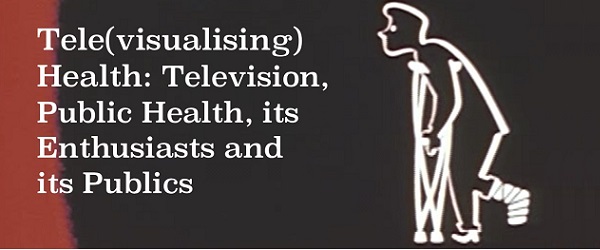Between 27 February and 1 March 2019, the ERC funded research group BodyCapital (The healthy self as body capital Individuals, market-based societies, body politics and visual media in twentieth-century Europe) and the Centre for History in Public Health of the London School of Hygiene and Tropical Medicine held a three-day international conference “Tele(visualising) Health: Television, Public health, its Enthusiasts and its Publics” in London, UK.
This was the second event in the series of conferences organised together with prominent history of health and science institutions that examine the relationship between TV, the body and health practices over the twentieth century (2018 conference was organised with Wellcome Collection and 2020 event is planned together with the Science Museum).

Tele(visualising) Public Health
Tele(visualising) Health conference concentrated on public health and brought together international scholars from history, history of medicine, communication, media and film studies, television studies working on the history of television. After World War II, TV was enthusiastically embraced as a way to reach and educate large numbers of people with health-related messages, but watching TV quickly became part of a shift towards more sedentary lifestyles, In particular, TV became a vehicle through which products that were damaging to health, such as alcohol, cigarettes and unhealthy food, could be advertised to the public.
The conference was structured around four thematic panels. These were complemented by three keynote speakers:
- Elizabeth Toon led us to reflect on TV as intervention, with the portrayal of bedside manners on British television (Through the night 1975; The singing detective 1986; Wit 2001), their representativeness and the resulting expectations when spectators became patients themselves.
- Jeremy A. Greene traced technology resulting from medicine using TV for remote diagnosis from Kenneth D. Bird’s 1968 clinic at the Boston Logan Airport to failed attempts to bridge barriers in public health care and policy.
- Christina Von Hodenberg brought forth a rich reception study to argue if and how the impact that TV (notably sitcoms) has on society can be measured, and that TV can be a catalyst for political change and public health issues.
Presentations in the first panel on TV as a public health tool highlighted the use of television programmes and campaigns to promote or warn against particular behaviours: good hygiene and values of communist regime on Health in Russia (Alexandre Sumpf), food and fitness between 1950s and 1970s West Germany (Susanne Vollberg), emotional equilibrium in 1960s East Germany (Sandra Schnädelbach), drug and alcohol abuse in Scotland (Alex Chandler).

A second panel focused on sexual health on TV with a look at how taboos were addressed in family-friendly sex education on 1960s-1970s TV in which Swedish television documentaries staged childbirth and abortion (Elisabet Björklund) and BBC reported on venereal diseases (Angela Saward), as well as a study of the disparity between the concerned ideal public and aloof reality of the Sidamag programme on AIDS in the 1990s in France (Pascale Mansier).
Panel three drew on the role of television and its use as a media to portray health systems. With the realistic functioning of the social security in France school documentaries (Christian Bonah & Joël Danet) and the echo of television coverage of the 1970s strike in Lindsay Anderson’s satire Britannia Hospital (Jessica Borge), we saw that portrayals were not only used to promote or inform on national systems, but also their shortcomings, whether subtly or overtly. The performative power and interactive force of TV were used by the GDR to campaign for self-governance and willingness to optimize self-improvement (Anja Laukötter).
The conference ended with a short panel on risk, health and TV with: a case of TV mediating the scandal of Morhange talc powder in the 1970s and the regulation of the cosmetic and hygiene industry production and public relations (Benjamin Coulomb) and a reflection on using moral attitudes for promoting health with unhealthy behaviour presented as not only a risk for the individual, but also for the familial unit in 1980s UK campaigns for cardiovascular health (Peder Clark).
A highlight of the conference was the presentation of a screening of curated thematic archives from the Wellcome Collection, titled Sex, Drugs and Swiss Rolls. Television archives and public health, at the Wellcome Library.
The many presentations covered a diverse array of television programmes related to public health and health practices in a number of national and political contexts. The crossing of these will contribute to the broad objective of the conferences in London to pinpoint key changes and continuities over time and place, and to the objective of the ERC BodyCapital project to understand the relationship(s) between health and TV, and how they might change broader conception of the history of health and/or of the history of television.
VIEW Journal
Several presentations from the conference, alongside external submissions, will appear in a special issue of VIEW Journal on the history of television and health in 2020, to be co-edited by Claude Mussou (Ina), Tricia Close-Koenig (ERC BodyCapital, Université de Strasbourg), Jessica Borge (ERC BodyCapital, Université de Strasbourg) and Angela Saward (Wellcome Collection).
While the special issue will include papers presented at the conference, it is open to any author who wishes to explore these topics. We invite you to submit your 500 word abstract proposals by 1 June 2019. You can find the full call for papers here.
Follow the BodyCapital project to find out about upcoming conferences, workshops and screenings.




